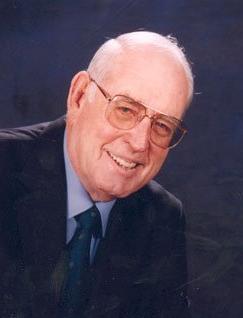Joe Black
Golf Pro, Ex 1955
 Joe Ed Black is a native of Lamesa, Texas. Upon graduation from Lamesa High School, where he earned four letters in golf and three in basketball, Joe came to Hardin-Simmons University on a golf scholarship and majored in business. Joe has been described as one of the greatest golfers in Hardin-Simmons University history. He led the HSU golf team to a National Association of Intercollegiate Athletics title in 1953 and the team won two Border Conferences, one in 1952 and one in 1953. Joe turned pro after his second year at HSU and for three years served as assistant pro at the Abilene Country Club while continuing as a student at HSU.
Joe Ed Black is a native of Lamesa, Texas. Upon graduation from Lamesa High School, where he earned four letters in golf and three in basketball, Joe came to Hardin-Simmons University on a golf scholarship and majored in business. Joe has been described as one of the greatest golfers in Hardin-Simmons University history. He led the HSU golf team to a National Association of Intercollegiate Athletics title in 1953 and the team won two Border Conferences, one in 1952 and one in 1953. Joe turned pro after his second year at HSU and for three years served as assistant pro at the Abilene Country Club while continuing as a student at HSU.
In 1955, with less than six months remaining to graduate from Hardin-Simmons, Joe Ed (as he was known then) was faced with the choice to either finish school or go on the Professional Golf Association tour. So, following his passion for the game, he packed up his gear, dropped his middle name, and started on a journey that has taken him around the world and back. He played on the 1956 PGA Winter Tour before becoming a regular on the PGA tour in 1957 and has been involved with the PGA ever since that time.
From humble beginnings as a golf caddy at the Lamesa Country Club (where, in his own words, “the West Texas course was nice and flat”), until his retirement in 2001 as president and founder of Western Golf Properties, Inc. in Scottsdale, Arizona, Joe has been involved in golf for over 50 years. He has not only played the game, but has become known as one of the leading authorities in the rules area.
In 1958, Joe became PGA Tournament Director. It was during this time traveling with the PGA that he met and married Susan Webb and their children Cyndi and Randy were born. The young family traveled the PGA Tour with Joe until their daughter Cyndi started school and Joe became Golf Pro at the 3,000-member Brookhaven Country Club in Dallas in 1963.
He has served on the rules committee at the Masters in Augusta, on the PGA rules committee, and as a consultant to the USGA rules committee. He was conductor of all Ryder Cup matches in this country from 1963 to 1977, and director of the National PGA Club Professional Championship.
After serving as National Treasurer of the PGA, Black was elected president of the PGA in 1981. This position later became known as the Commissioner of PGA. He has been credited with placing the PGA in a solid financial position. He was inducted into the Texas Golf Hall of Fame in 1982.
In 1989, the Joe Black Golf Endowment was established at Hardin-Simmons when, at Joe’s request, the Alberta B. Farrington Foundation made a gift of $50,000 in his honor. Investment earnings from the endowment are used for the operation of the HSU golf program. Additionally, the Joe Black Golf Classic is held each year at HSU to raise funds for Hardin-Simmons golf.
In 1990 he was inducted into the HSU Athletics Hall of Fame. During his time as tournament director for the PGA, Joe was seen by his peers as a stern disciplinarian—some even called him “preacher.” The first tournament he worked, the Los Angeles Open, forced upon him 28 rules decisions. After that he found decision-making easy, suggesting that, “Everything that can come up is covered in the rules book—somewhere—and all you have to do is find it.”
Joe has rubbed elbows with the famous. We’ve seen photos of him today with presidents, actors, baseball players, and some of the best golfers in U.S. history. Ever true to his integrity to the rules, he did, however, almost rub one of them the wrong way. In 1962, shortly after Jack Nicklaus had begun his illustrious career by beating Arnold Palmer in a playoff at Oakmont to make the U.S. Open his first professional victory, Joe took him down a notch—or two. He penalized Jack two strokes for slow play during the Portland Open at the Columbia-Edgewater Country Club. Joe admits this was his most notorious rules decision but that he was just doing his job. After the game, Joe asked Nicklaus to join him in the clubhouse so he could explain to him what was slowing down his game. The two remained friends, and Nicklaus mentions in one of his books that Joe’s action that day was one of the best things that ever happened to him. Joe’s willingness to give instruction with his penalty demonstrates the integrity of a man who not only enforces the rules but also cares for people.